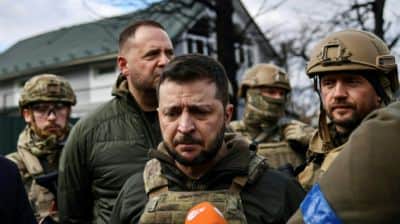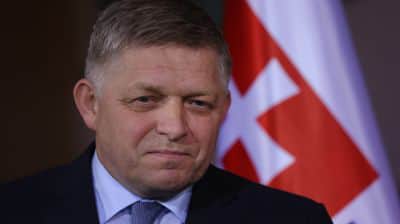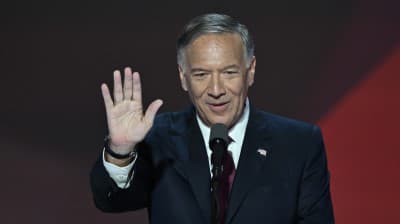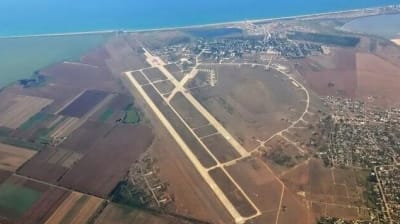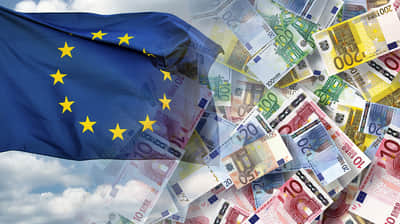ISW explains why Prigozhin accuses Russian Defence Ministry of attempting to destroy Wagnerites during their withdrawal from Bakhmut
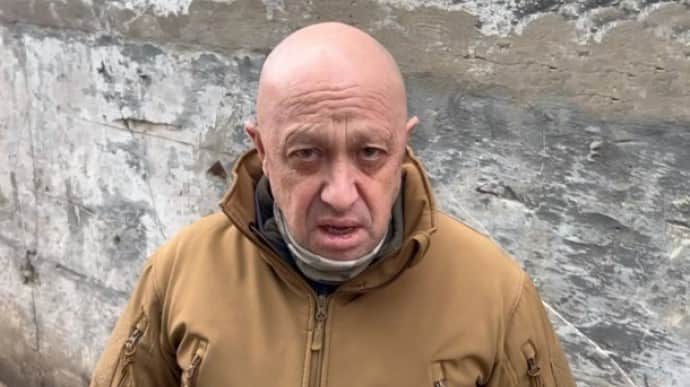
Analysts at the Institute for the Study of War believe that Wagner Group financier Yevgeny Prigozhin has escalated his feud with the Russian Defence Ministry to downplay his conflict with Chechen leader Ramzan Kadyrov.
Source: ISW
Details: Prigozhin stated on 2 June that representatives from the Russian Ministry of Defence had placed anti-tank mines and other explosive devices along the routes used by Wagner forces to withdraw from Bakhmut. According to Prigozhin, the mines were placed in rear areas where there is no activity on the part of Ukraine, and therefore the Defence Ministry probably intended to give Wagner a "public flogging".
On 3 June, Prigozhin also responded to a coordinated information attack on him by Chechen commanders, saying that he and Kadyrov had settled the conflict. Prigozhin has also claimed that he called Kadyrov on 1 June, and they agreed that "the whole story about the conflict will be dispelled". At the same time, Prigozhin has suggested that the conflict between Kadyrov's forces and the Wagner Group could have been started by a group in the Kremlin, and hinted that the Kremlin often plays "dangerous games" that could destabilise inter-ethnic relations in Russia. Kadyrov, for his part, has not yet publicly commented on the conflict between the Chechen commanders and the Wagner PMC.
Quote: "Prigozhin likely accused the Defence Ministry of trying to kill Wagner forces and the Kremlin of creating the conflict with the Chechen commanders to quickly reorient Russian discussion back to his usual targets of ire, the Russian military and political leadership.
Prigozhin is also likely aiming to rally pro-war ultranationalist groups, specifically Kadyrov and Chechen commanders, to join him in criticising those targets as he has done before.
Prigozhin’s flamboyant allegations are also likely an attempt to retain his heightened initiative within the Russian information space following the capture of Bakhmut.
Prigozhin has consistently shaped discussions within the Russian information space leading up to the capture of Bakhmut and following the end of Wagner’s effort in the city by engaging in a near-daily series of public outbursts and demonstrative actions. Prigozhin has used his heightened profile following the capture of Bakhmut to intensify his attacks against the Russian military establishment and elites and bolster his attempt to solidify himself as the central figure of the Russian ultranationalist community.
The concerted attack from Chechen commanders represents the first instance since the capture of Bakhmut that Prigozhin has not been the one to initiate larger conversations about himself and the Wagner Group within the Russian information space.
Prigozhin has routinely used Wagner’s claimed responsibility for tactical gains to legitimise his pursuit of influence and his criticism of others, and he is likely also concerned that he may soon lose his current ability to dominate discussions about himself and Wagner as Wagner Group forces withdraw to rear areas to replenish and reconstitute.
Prigozhin’s dramatic accusation against the Defence Ministry aims to remove any constraints resulting from his conflict with Kadyrov, shift the conversation back to criticising his opponents in the Defence Ministry, and allow Prigozhin to continue determining how he and Wagner are portrayed."
Journalists fight on their own frontline. Support Ukrainska Pravda or become our patron!
